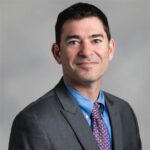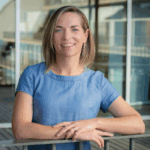
At the Neuroendocrine Tumor Research Foundation (NETRF), we believe that the path to better treatments and cures, starts with research. However, ensuring that we fund only the highest-quality, most promising research requires more than resources and good intentions. It requires deep scientific expertise, careful oversight, and an unwavering commitment to integrity. That’s where our Board of Scientific Advisors (BOSA) comes in.
What is the BOSA?
NETRF’s BOSA is a team of internationally recognized leaders in neuroendocrine cancer research. These experts help guide our research strategy, keep us at the cutting edge of science, and ensure that every dollar we invest in research delivers the greatest possible impact for patients and families.
Our BOSA members advise us on which research areas are most urgent, identify groundbreaking new directions, and review research grant applications to ensure they meet the highest scientific standards. They also serve as ambassadors for NETRF in the scientific community, raising awareness, building collaborations, and helping to grow a global network of neuroendocrine cancer researchers.
Safeguarding Integrity
Scientific objectivity and trust are the cornerstones of our work. That’s why NETRF has clear policies to eliminate conflicts of interest. BOSA members cannot apply for NETRF research grants while serving on the board, and they must disclose any personal, professional, or financial relationships that could influence their judgment.
All confidential information, such as unpublished research data or grant reviews, is handled with care and discretion. Our BOSA members agree to keep this information private and use it solely to fulfill their responsibilities at NETRF.
Meet Our Newest Scientific Advisors
This year, we are thrilled to welcome seven outstanding researchers to the NETRF BOSA. Each brings unique expertise that will enhance our ability to fund innovative, patient-focused science.

Justin Annes, MD, PhD
Associate Professor of Medicine, Stanford University, Palo Alto, California
Dr. Annes is a leader in hereditary neuroendocrine tumor syndromes, specifically the treatment of hereditary endocrine disorders, such as pheochromocytoma and paraganglioma. He directs the Endocrine Genetics Clinic at Stanford Hospital, which focuses on the care of patients and families with Endocrine Tumor Syndromes. He holds leadership roles in NANETS and the Pheo Para Alliance.

Mauro Cives, MD
Associate Professor of Medical Oncology, University of Bari “Aldo Moro,” Bari, Italy
Dr. Cives focuses on immunotherapy for pancreatic NETs. His lab explores cutting-edge approaches, including cancer vaccines, BiTEs, TILs, and CAR T cells, to improve immune system targeting of NETs. He serves on the ENETS Advisory Board.
 Talya Dayton, PhD
Talya Dayton, PhD
Group Leader, EMBL Barcelona, Spain
Dr. Dayton leads a research group that pioneers patient-derived tumor organoid models focused on lung neuroendocrine tumors, enabling ex vivo platforms for experimental therapeutics and mechanistic neuroendocrine tumor biology studies. She is a founding member of the ENETS Basic & Translational Science group.
 Iacovos Michael, PhD
Iacovos Michael, PhD
Canada Research Chair in Tumor Biology & Precision Oncology; Assistant Professor, University of Toronto; Scientist, Sunnybrook Research Institute, Toronto, Canada, University of Toronto & Sunnybrook Research Institute, Canada
As a Canada Research Chair and Assistant Professor, he studies the mechanisms that enable cancer plasticity and metastasis in neuroendocrine tumors. He holds leadership roles with CNETS, NANETS, and CommNETs.
 Erik Mittra, MD, PhD
Erik Mittra, MD, PhD
Professor, Diagnostic Radiology & Chief, Molecular Imaging & Therapy; Director, Theranostics Program, Oregon Health & Science University, Portland, OR
Dr. Mittra spearheads the development and translation of theranostic radiopharmaceuticals (a field combining diagnostics and therapy) into clinical practice. He holds leadership roles with SNMMI, the Pheo/Para Alliance, and NANETS.
 Lois Mulligan, PhD
Lois Mulligan, PhD
Bracken Research Chair in Genetics & Molecular Medicine; Professor of Pathology & Molecular Medicine, Associate Head (Education), Department of Pathology & Molecular Medicine, Queen’s University, Kingston, Ontario, Canada
Dr. Mulligan is recognized for her work on RET receptor tyrosine kinase signaling and hereditary cancer syndromes, including medullary thyroid cancer, a type of neuroendocrine cancer. Her expertise in molecular signaling helps uncover how these cancers develop and how to target them more effectively. She has a leadership role with NANETS.
 Gregory Way, PhD
Gregory Way, PhD
Assistant Professor, Biomedical Informatics, University of Colorado Anschutz, Denver, Colorado
Dr. Way aims to reduce human suffering through biomedical data science methods and applications. His expertise is machine learning, software development, high-content microscopy, and high-throughput drug screening for precision oncology and rare cancer drug discovery.
Why This Matters
The work of our Board of Scientific Advisors touches every aspect of NETRF’s mission. By providing expert guidance, helping us prioritize the right projects, and ensuring transparency and accountability, BOSA members equip NETRF with the tools to make informed, high-impact research investments.
We are honored to have these exceptional minds join our team. Please join us in welcoming our new BOSA members, and stay tuned as their insights help fuel the next breakthroughs in neuroendocrine cancer research.
